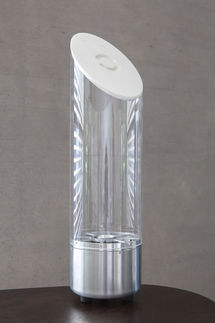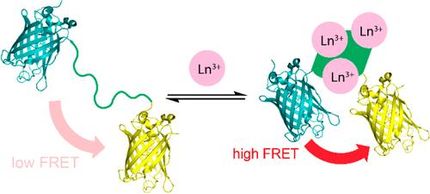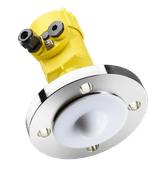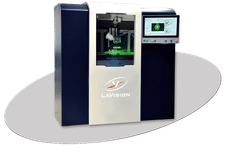BAM spin-off develops lightweight explosives trace detector for mobile use
Novel detection chemistry based on chemical-optical measurement technology
Advertisement
The detection of explosives is important for civil security. Previous sensors are heavy, expensive and complex to maintain. A team of founders from the Federal Institute for Materials Research and Testing (BAM) wants to bring a mobile explosives trace detector to market that detects explosives more reliably and thus makes an important contribution to security in the civil sector
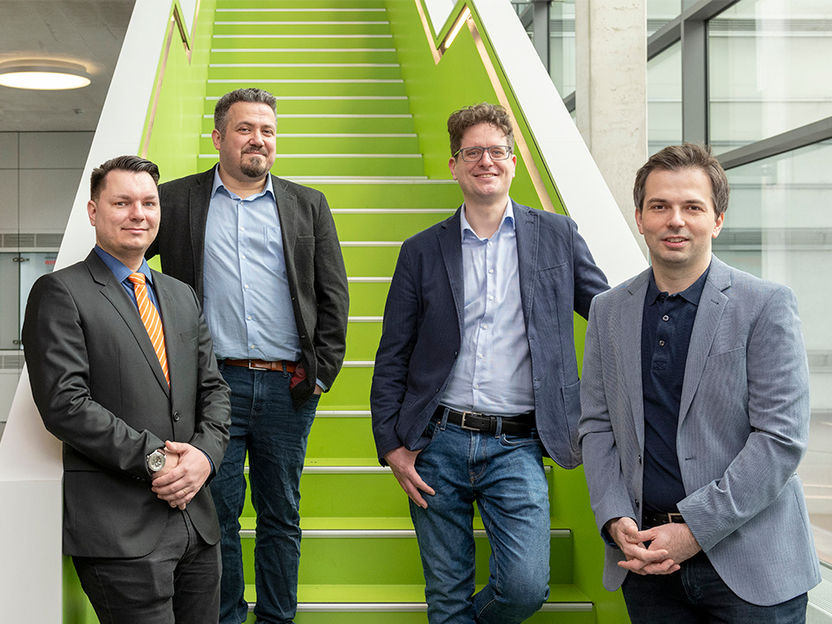
The founding team of True Detection Systems GmbH: Christopher Walter, Mustafa Biyikal, Martin Kaiser and Bruno Jan Rycek (from left to right).
BAM
In the civil security sector, explosives have so far been detected mainly by stationary stand-alone devices, for example at airport security gates. The few portable devices currently available on the market, weighing an average of five kilograms, are only suitable for mobile use to a very limited extent. In addition, the maintenance and cleaning of these devices are very cost-intensive.
"For most users, the devices are also too expensive to purchase. They also do not tolerate water and are therefore prone to false alarms in high humidity. Because they work on the basis of ion mobility spectroscopy, some devices contain a radioactive source and are thus subject to numerous safety regulations for transport, storage, use and disposal," explains Mustafa Biyikal, an expert in chemical sensors at BAM.
A few years ago, Biyikal set himself the goal of developing an explosives detector that is not only more powerful, but also lighter and less expensive than existing devices. Together with Knut Rurack, his mentor at BAM, he developed a novel detection technique based on chemical-optical measurement technology and now holds several patents for it. Special dyes are used to detect explosives. They react to the explosives, e.g. TNT, and change their fluorescence behavior; this in turn is registered by a photoelectron multiplier and converted into an electronic signal. Detection takes place in a matter of seconds. A unique feature here is that after measuring a heavily contaminated sample, only the chip needs to be changed, not the entire device, which requires time-consuming cleaning. They also succeeded in accommodating the detections for nitro, nitrate, peroxide and inorganic explosives on a chip the size of a postage stamp (lab-on-a-chip), thus saving weight.
Now the sensor technology expert wants to bring the explosives detector, which weighs just 1.3 kilograms, to market maturity with a start-up. To this end, he is founding True Detection Systems GmbH (TDS) together with his BAM colleagues Martin Kaiser and Bruno Jan Rycek, experts in artificial intelligence and finance and marketing respectively, and Christopher Walter, an engineer from the aviation industry. Over the next year and a half, the team will be supported by the EXIST funding program of the German Federal Ministry of Economics and Climate Protection (BMWK). EXIST is aimed, among others, at scientists from non-university research institutions who want to realize a business idea around an innovative product.
Starting in 2025, the team plans to launch the explosives sensor initially in the EU and the UK. Later, it will also be available in the U.S., Canada and Asia.
"Our sensor is interesting for a broad market, in Germany alone for the federal and state police, the German armed forces, the fire department, the Federal Agency for Technical Relief, state authorities, customs and, of course, private security companies," said team member Bruno Jan Rycek.
"The spin-off of True Detection Systems GmbH in the important field of civil security shows how application-oriented and innovative research is carried out at BAM. It is another example of successful technology transfer from science to practice," said BAM President Prof. Dr. Ulrich Panne. "I wish the founding team every success.".
Note: This article has been translated using a computer system without human intervention. LUMITOS offers these automatic translations to present a wider range of current news. Since this article has been translated with automatic translation, it is possible that it contains errors in vocabulary, syntax or grammar. The original article in German can be found here.
Other news from the department business & finance
These products might interest you
Most read news
More news from our other portals
Something is happening in the chemical industry ...
This is what true pioneering spirit looks like: Plenty of innovative start-ups are bringing fresh ideas, lifeblood and entrepreneurial spirit to change tomorrow's world for the better. Immerse yourself in the world of these young companies and take the opportunity to get in touch with the founders.
See the theme worlds for related content
Topic world Sensor technology
Sensor technology has revolutionized the chemical industry by providing accurate, timely and reliable data across a wide range of processes. From monitoring critical parameters in production lines to early detection of potential malfunctions or hazards, sensors are the silent sentinels that ensure quality, efficiency and safety.
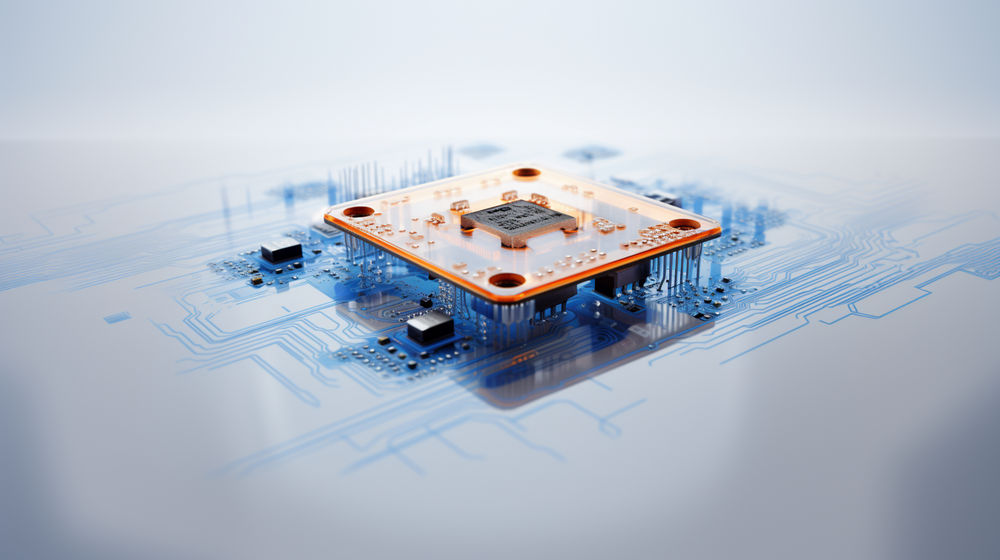
Topic world Sensor technology
Sensor technology has revolutionized the chemical industry by providing accurate, timely and reliable data across a wide range of processes. From monitoring critical parameters in production lines to early detection of potential malfunctions or hazards, sensors are the silent sentinels that ensure quality, efficiency and safety.



